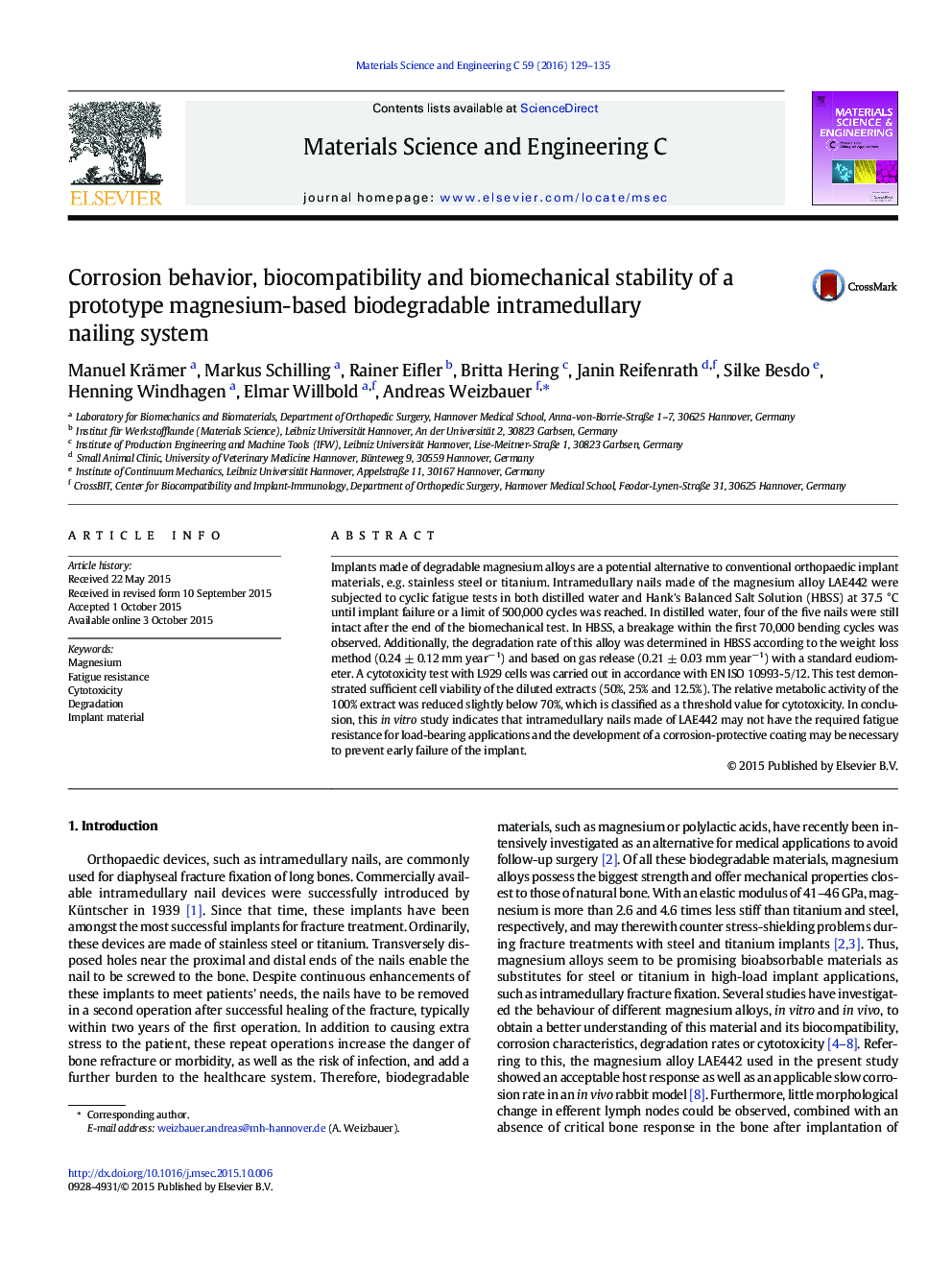| کد مقاله | کد نشریه | سال انتشار | مقاله انگلیسی | نسخه تمام متن |
|---|---|---|---|---|
| 7868335 | 1509162 | 2016 | 7 صفحه PDF | دانلود رایگان |
عنوان انگلیسی مقاله ISI
Corrosion behavior, biocompatibility and biomechanical stability of a prototype magnesium-based biodegradable intramedullary nailing system
ترجمه فارسی عنوان
رفتار خوردگی، سازگاری با محیط زیست و پایداری بیومکانیکسی یک نمونه از پروتئین سیستم ناخن زدایی قابل انعطاف بر روی منیزیم
دانلود مقاله + سفارش ترجمه
دانلود مقاله ISI انگلیسی
رایگان برای ایرانیان
کلمات کلیدی
منیزیم، مقاومت خستگی، سمیت مسمومیت، تنزل، مواد ایمپلنت،
موضوعات مرتبط
مهندسی و علوم پایه
مهندسی مواد
بیومتریال
چکیده انگلیسی
Implants made of degradable magnesium alloys are a potential alternative to conventional orthopaedic implant materials, e.g. stainless steel or titanium. Intramedullary nails made of the magnesium alloy LAE442 were subjected to cyclic fatigue tests in both distilled water and Hank's Balanced Salt Solution (HBSS) at 37.5 °C until implant failure or a limit of 500,000 cycles was reached. In distilled water, four of the five nails were still intact after the end of the biomechanical test. In HBSS, a breakage within the first 70,000 bending cycles was observed. Additionally, the degradation rate of this alloy was determined in HBSS according to the weight loss method (0.24 ± 0.12 mm yearâ1) and based on gas release (0.21 ± 0.03 mm yearâ1) with a standard eudiometer. A cytotoxicity test with L929 cells was carried out in accordance with EN ISO 10993-5/12. This test demonstrated sufficient cell viability of the diluted extracts (50%, 25% and 12.5%). The relative metabolic activity of the 100% extract was reduced slightly below 70%, which is classified as a threshold value for cytotoxicity. In conclusion, this in vitro study indicates that intramedullary nails made of LAE442 may not have the required fatigue resistance for load-bearing applications and the development of a corrosion-protective coating may be necessary to prevent early failure of the implant.
ناشر
Database: Elsevier - ScienceDirect (ساینس دایرکت)
Journal: Materials Science and Engineering: C - Volume 59, 1 February 2016, Pages 129-135
Journal: Materials Science and Engineering: C - Volume 59, 1 February 2016, Pages 129-135
نویسندگان
Manuel Krämer, Markus Schilling, Rainer Eifler, Britta Hering, Janin Reifenrath, Silke Besdo, Henning Windhagen, Elmar Willbold, Andreas Weizbauer,
